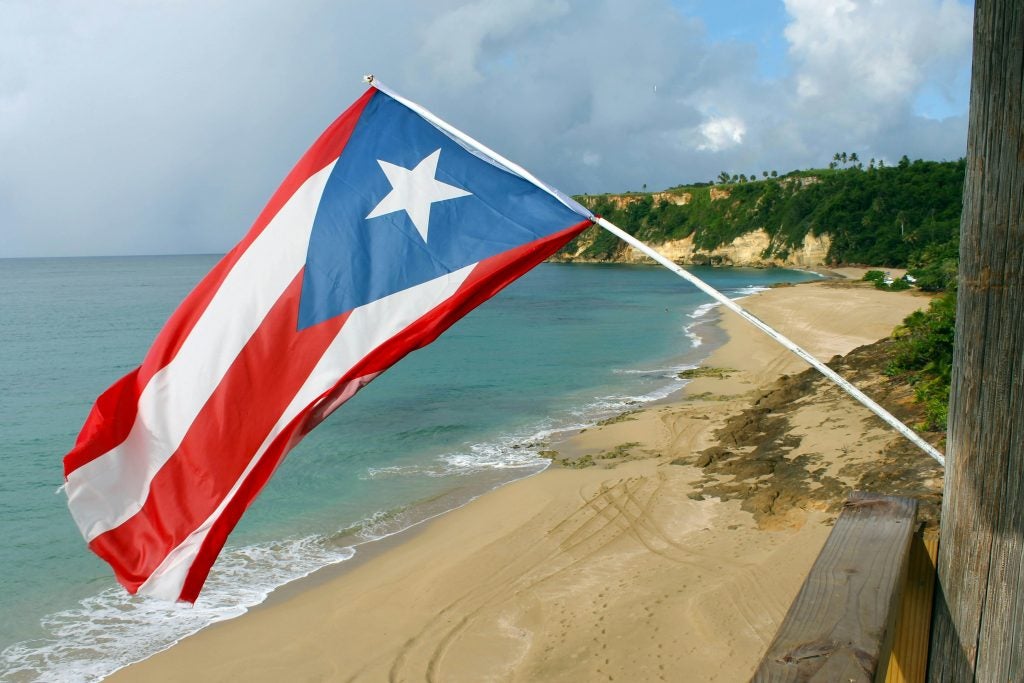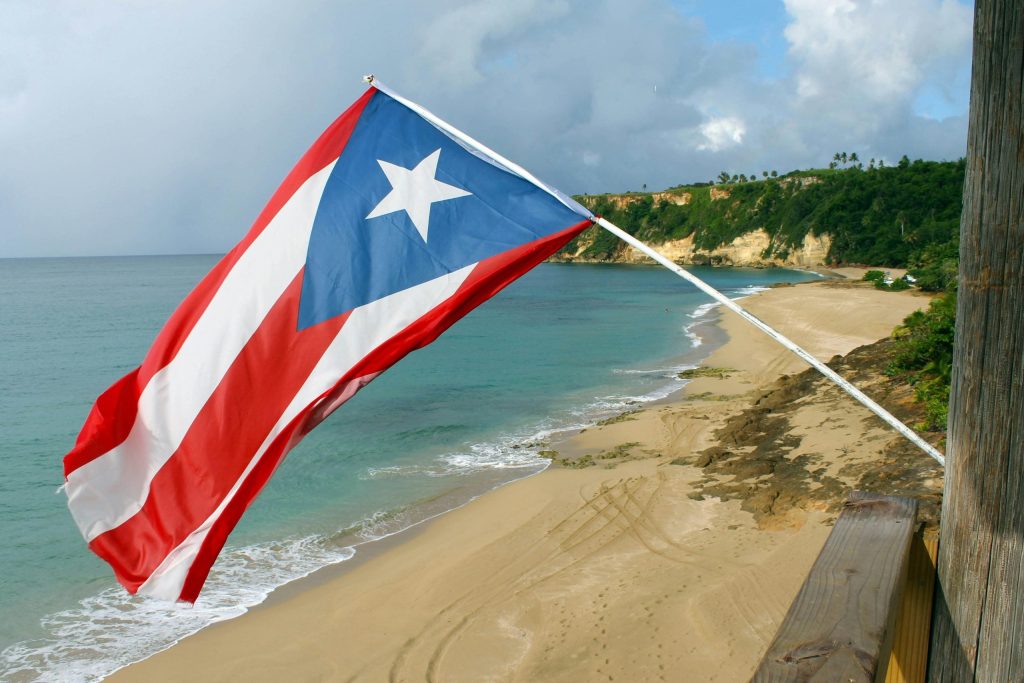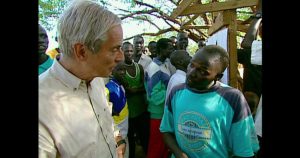
Georgetown Journal of International Affairs: Puerto Rico’s political system operates under unique constraints as U.S. territory. In your view, how does this influence the functionality of its political institutions, and what reforms would you prioritize?
Aníbal Acevedo Vilá: It is a complicated relationship, in the sense that Congress still has plenary powers over Puerto Rico. In 2016, this included passing a law called PROMESA to deal with the financial crisis the government of Puerto Rico faced. The law mandated a financial oversight board—‘La Junta’ as we call it—appointed directly by the President. They have powers over the elected officials of Puerto Rico, meaning we now not only have limited means to deal with our own local issues in the first place, but also a board which can overturn the governor or legislature of Puerto Rico in many economic areas.
To reform this, we first need to get rid of the board, but in order for that to happen, we need five consecutive years of a balanced budget. The problem, however, is, the board themselves can determine when this period can be counted. At some point, I believe we ultimately need a new arrangement with the United States, finally addressing the ‘status issue’, as it’s called in Puerto Rico: whether it be independence, free association, statehood, or some kind of reform to the current territorial status.
GJIA: How do you see the future of this ‘status issue’ debate unfolding, and what role do you believe public referenda should play in resolving it?
AAV: I don’t think local plebiscites have any impact in Congress. We just had one on November 5th, and have had five more since 1967, none resulting in any change. The problem is, these referendums have been organized by the statehood party with no consensus here in Puerto Rico, and no approval from Congress. As a result, nobody really pays respect to their outcome.
Our other parties in Puerto Rico essentially boycott the votes, which means that while the official results this cycle say statehood won 56 percent of the vote, after counting intentionally blank or damaged ballots, support drops to 47 percent. This was even lower than the last plebiscite, where statehood was at 52 percent. Beyond this, Congressional Republicans are very much against offering statehood to Puerto Rico, and even though I believe Congress should offer Puerto Rico real alternatives in terms of our relationship with the United States, I don’t see this happening anytime next session.
GJIA: You’ve represented Puerto Rico in Congress, holding the role of Resident Commissioner with a unique vantage point in Washington, D.C. How would you assess the current state of U.S.-Puerto Rico relations, and what policy changes could help Puerto Rico better navigate its relationship with the federal government?
AAV: I was Resident Commissioner from 2001 to 2004, and I have to say, the relationship today is much more complicated and important, as Puerto Rico’s dependence on federal funds is much larger. In terms of the structural changes that we need and how we can pass them, I can give the example of how I managed to fix the discrimination against Puerto Rico in education funds. Working with Senator Kennedy, I included within President Bush’s ‘No Child Left Behind’ the language to give Puerto Rico Title I and other educational funding through the same formula as any other jurisdiction. We need that for healthcare, as Puerto Rico faces significant Medicaid discrimination, even though we comply with the same federal standards. This creates structural problems within our healthcare system and could be fixed immediately by Congressional legislation.
GJIA: Expanding on your experience, as Governor you faced economic challenges that required austerity measures. With Puerto Rico still grappling with fiscal crises, what policies would you recommend to future administrations to balance economic growth with debt sustainability?
AAV: Honestly, we’re on the verge of missing that opportunity and we have to take advantage of the federal investment in Puerto Rico, directing those funds towards economic development. Many people think our main economic sector is tourism, but Puerto Rico’s economic structure is based on manufacturing. For more than four decades we had a federal tax incentive for US manufacturing companies to invest in Puerto Rico, and our economic crisis started precisely in 2006 when it phased out. If we don’t get investment in these productive sectors of our economy, I don’t know what’s going to happen when the federal funds that were allocated after Hurricane Maria are totally spent. Congress needs to realize that if they give some kind of flexibility or new incentive to Puerto Rico, it will help the most to get out of the economic crisis.
For example, the Jones Act says that every good that goes between Puerto Rico and mainland has to use a vessel with a US flag, making it the most expensive maritime system in the world. If we could get flexibility with that it’ll help Puerto Rico trade with the US on fairer conditions and better prices. It’ll also help bring back manufacturing to the mainland. The Asian advantages in pharmaceutical and high-tech manufacturing can come back to Puerto Rico, and an incentive would help the most with that. I’m not talking about the exact same thing we had in the past, but something that will tell those companies “Look, it makes sense to go back to the US, and why not through Puerto Rico”.
GJIA: You mentioned the impact of Hurricane Maria, and we have seen how both it and the COVID-19 pandemic exposed systemic vulnerabilities in Puerto Rico’s governance. How can political systems be reformed to better respond to such crises in the future?
AAV: That reform should come from the local government, and not to unfairly criticize, but I think we have been too slow in pursuing them. For example, one of the major consequences of Hurricane Maria was the collapse of our electric power grid in Puerto Rico. I estimate Congress appropriated around $17 billion for its reconstruction and around only 10 percent or 20 percent of those funds have been used so far. So, today, we have a deeper power crisis than the one we had four years ago, which I have to be honest, is partly our fault too. FEMA and the federal government place a lot of requirements, but at the end of the day it’s the local governments that have the power to decide where to invest those funds. On top of that, our main concern is the new Trump administration will say “since you haven’t used those funds, we’re going to take them back”. We need to decentralize the government of Puerto Rico and deal with the bureaucratic problems that make it very difficult to move forward with reforms, and in this case, to adequately use the funds that were allocated by Congress.
GJIA: Many U.S. university endowments, including Yale’s, have faced criticism for investments in funds holding Puerto Rican debt. How do you view the role of these institutional investors in Puerto Rico’s debt crisis, and what steps, if any, should universities take to support Puerto Rico’s economic recovery?
AAV: It really depends on when these endowments bought bonds from Puerto Rico. In the late 1990’s, they were popular across Wall Street, but now, they’re junk, and only hedge funds are investing in Puerto Rico. I don’t think we’re ready to knock on the door of university endowments until Puerto Rico is a good opportunity, because it’s not yet, and our first goal is therefore to get back credibility. We need to be rated again by the rating agencies to encourage market investment, from everyone, but first our debts need to be restructured, which in the case of the power company, I don’t foresee a solution until next year at the earliest.
GJIA: Bringing this together, how would you describe your own stance on Puerto Rico’s political status, and how do you envision this model addressing 21st-century challenges?
AAV: I entered politics defending the current Commonwealth relationship. After Congressional actions and Supreme Court decisions reaffirming Puerto Rico is still a territory—basically a colony under Congressional powers—I firmly believe in a new relationship on the terms of a ‘free associated state’. Congress should have powers that are collectively agreed upon, not unlimited as they are right now, and for Puerto Ricans, there are four areas we understand should be in any kind of relationship: common citizenship, currency, market, and defense. With these, you will give an inherent stability to the relationship.
It is a matter of dignity, and once you have these economic rules clearly established, then you can attract investment to the island, allowing for the economic development we need. Over the last 5 to 6 years, there’s been a lot of progress in discussions both in Congress and here in Puerto Rico, and I could foresee another set of conversations within 10 years, talking about the kind of details to be included in a free association compact between Puerto Rico and the United States. That’s what I hope for, and what I believe is best for Puerto Rico and the United States.
…
Aníbal Acevedo Vilá is a Puerto Rican attorney, politician, and academic who served as the 9th Governor of the Commonwealth of Puerto Rico from 2005 to 2009 as a member of the Popular Democratic Party (PPD). Prior to his tenure as governor, he was elected to the Puerto Rico House of Representatives, where he served as Minority Leader (1997–2000), and as Resident Commissioner of Puerto Rico in the U.S. Congress (2001–2005).
He holds a Bachelor’s degree in Political Science and a Juris Doctor, both magna cum laude from the University of Puerto Rico, as well as an LL.M. from Harvard Law School. Beyond politics, he remains a regular commentator on Puerto Rican affairs and is an adjunct professor at the University of Puerto Rico School of Law.
This transcript has been lightly edited for clarity and length.
Interview conducted by Sid Mehrotra and Spyridon Spyromilios.
Image Credit: Ana Toledo, Unsplash, Via Unsplash Content License






